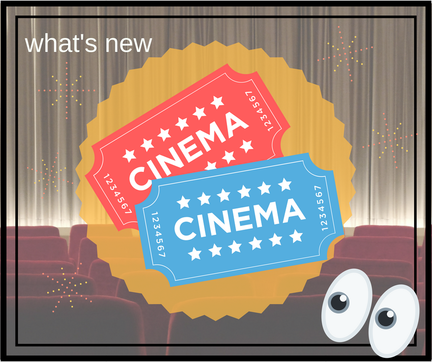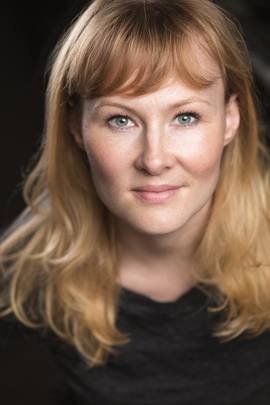|
The recent cinema livestreams and releases of filmed live musicals An American in Paris and Everybody's Talking About Jamie show how live musicals are increasingly going to the movies. This week, we're taking a look at some of the new technology being rolled out in cinemas around the world that provide exciting possibilities for the future of filmed live musicals and the cinema-going experience. 4D 4D cinema, also known as immersive cinema, is considered by some as the new frontier of the cinema going experience. With its motion-enabled seats, water spray, lighting effects, scented air, wind machines, and even bubbles and snow, 4D is no longer just for theme parks, it’s coming to a local cinema near you! First commercially developed in the 1980s, 4D cinemas are now in operation around the world. At the time of writing, there are approximately 40 4D theatres in operation in the United States. Tickets cost around $30, and the admissions guidelines read like an amusement park ride warning — “If you are pregnant, elderly, physically or mentally sensitive or have any of the following health conditions, you should not use a 4DX auditorium: high blood pressure, heart conditions, allergies, neck or back conditions or epilepsy.” Over 100 films have been viewable in 4D, with the vast majority of films falling into the blockbuster, action movie, and animation categories. Titles have included Star Wars: The Force Awakens, Jurassic World, Avengers, How to Train Your Dragon 2, and, most recently, The Incredibles 2. Can 4D be effective for other film genres? More importantly for Filmed Live Musicals, could this technology be applied to the filmed live theatre experience? Could we somehow re-create the smell of theatre in which a musical was filmed, or the strong perfume worn by an audience member? Would bursts of air be felt when an actor walks past us on the screen? Would we feel a spray of water to mimic the sweat of a dancer during a tap routine? ` North American theatre chain Regal Movies describes their 4DX theatres as the “Absolute Cinema Experience” that makes you feel like you’re “in the movie” (my emphasis), but reviews suggest 4D cinema is not all it’s cracked up to be. Several critics have described attending 4D cinema as akin to riding a bad rollercoaster, and that the attempts to make the experience “immersive” only serve to bring the viewer out of the film. Do you think 4D cinema will catch on? Moviebills An exciting new technology that is more likely to be compatible with filmed live musicals are Moviebills. Developed by US cinema compamyRegal Entertainment Group, and launched in April 2018, Moviebills comprise of a 28-page print magazine, phone app, and website, which provide users with print and augmented reality (AR) content including interviews, bonus footage, behind-the-scenes info, and more. Looks super cool right? Moviebills are only available for select blockbuster movies, and only in Regal Cinemas. I’m hoping other companies, and perhaps even live theatres, will want to jump in on this fun innovation. New York City's Classic Stage Company only offered digital programs for their recent production of Carmen Jones, and the UK's National Theatre provides digital programs through their Backstage app for a small fee (only available in the UK). On Demand Cinema With so many entertainment options available to audiences at home, the cinema industry has been working hard to lure customers back into the theatres. An interesting new development in this endeavor is on-demand movie theaters. In 2013, Australian distributor Leap Frog Films launched Demand Film, a service that books film screenings of niche films in cinemas based on audience demand. Users request a movie, and Demand Film organizes a screening. The user must sell a minimum number of tickets for the screening to go ahead, and once the minimum is met, the user can make money from the ticket sales. Demand Film is currently available in Australia, New Zealand, UK, Ireland, Germany, Canada, and the United States. Chinese online entertainment service iQiyi announced in May the launch of Yuke movie theatres. The cinemas are like mini movie theatres, with 2-10 comfy seats and a large screen. Users select content from the extensive iQiyi library and watch it in a Yuke cinema, at the time and location of their choosing. Could we one day get a group of friends together at our local cinema and watch a Broadway or West End show? Whether or not these technologies take off, one thing is clear: these new innovations are making more and more content available to us in ever more exciting ways. I'll be checking out the filmed live London production of An American in Paris at the cinema in a few weeks. Follow on Twitter for updates! This content originally appeared in the July edition of the Patron-only newsletter. If you would like first access to bonus content, join the Filmed Live Musicals Patron today! Filmed Live Musicals is a labor of love that takes many hours of research and hundreds of dollars to run.
Many thank you's to Star patrons Mercedes Esteban-Lyons, Jesse Rabinowitz and Brenda Goodman, and David and Katherine Rabinowitz for financially supporting the site.
0 Comments
The following interview was originally published in the July edition of the Filmed Live Musicals Patron newsletter. When you become a patron, you will be supporting the running of this site, and original research into the ever growing field of filmed live musicals. Previous newsletters include content on upcoming screenings, new movie technology, and 360º captures. Star Patrons also gain access to filmed live musical reviews. To gain access to Patreon-only content, become a Patron today! British actor and writer Carrie Sutton has performed in many West End musicals including Sister Act: The Musical, Chitty Chitty Bang Bang, Little Women, Cabaret, Imagine This, and Kiss Me, Kate. She also worked as a dresser on the recent West End musical The Wind in the Willows. You can catch Carrie performing as Laurey in Oklahoma! later this month at the Gordon Craig Theatre in Stevenage. Imagine This, Kiss Me, Kate, and The Wind in the Willows were all filmed live. I recently chatted with Carrie about her experiences working on these filmed live musicals. What difference is there between acting for camera and acting on stage? How does that translate when you’re filming a live stage show? You’re still giving a theatrical performance, but there is an awareness of the camera. It’s a different scale. I aimed for the middle of the audience rather than the back, and in close-up moments, I tried to be still. The audience is recorded too, and that energy translates on camera. For “Kiss Me, Kate” and “The Wind in the Willows,” we did pick-ups after the performance. For example, a mic went down during the show, so afterwards we re-recorded some scenes out of sequence. You knew Kiss Me, Kate was going to be filmed from the outset. Did you rehearse for the stage or for the camera? We rehearsed it as a piece of theatre, and it was filmed as a piece of theatre. In fact, John Wilson [the conductor], told us to “chip your teeth on the words” because Royal Albert Hall is so big. You really have to work hard to make yourself understood in that space. So we definitely worked for the live performance of it. We had rehearsals at the Town Hall in Belsize Park, and then the camera guys would come in and see the work. They would check angles and close-ups, and compare it to marked-up scripts. There is a lot of back and forth between the director, the DP [director pf photography], and the choreographer. It’s very much a group effort. "Kiss Me, Kate" aired during prime time on Christmas Day. That was so exciting for me. A real bucket list item. Stage musicals are sometimes altered when the cameras come in. What aspects of Imagine This were changed for the filming? Some slight blocking changes were made to accommodate the cameras, but from the actors’ perspective very little was changed. What was it like working as a dresser on “Wind in the Willows”? It was filmed over three days. We had a dress rehearsal for close-ups, and where they got pick-up footage for when things go wrong in live filming, like a child screaming in the audience, or costume failure. The costumes had to be immaculate — it has to be perfect for film. What passes on a regular show won’t pass on a recording. Socks have to be level, ties have to be straight. There is extra attention to detail on quick changes because all the clothes use velcro, ties are stuck on with velcro, shirts do up with velcro, it has to be exact or it doesn’t look right. How do contract negotiations work for filmed live musicals? All the negotiations are done through the producer. For “Imagine This” we were given a fee for filming, or perhaps we waived it, and were bought out for the broadcasts. “Kiss Me, Kate” was all done prior and we just signed a standard BBC contract. If you had a step out, you received extra. You get reimbursed for royalties. It’s all worked out with the cast and crew and everyone is allocated points based on how much you work during the rehearsals and during the show. Like in “The Wizard of Oz,” we ended up distributing points based on word count. The female ensemble had a lot more to do in that show, so we were given more points. EPKs [Electronic Press Kit] are included in new contracts. We spend around a day in the theatre shooting scenes for promotional copy. The scenes are different from what’s in the show, we learn new blocking that works better for the camera, like a dance will be more spaced out, or the angles will be slightly different. “The Wizard of Oz” were on Children in Need. We did a montage specifically for that show. It was covered in the EPK as “reasonable promotion.” What do you think of filmed live musicals or filmed live theatre in general? It’s both theatre and film. It’s a record. It is important to have records of shows. People who would otherwise never be recorded are able to have a record of their work, especially ensemble members. It creates revenue for the production. It brings art back to the people. It makes the West End accessible to people who are far away. Do you have a favorite filmed live theatre event? The entire Kenneth Branagh season. I saw it filmed live, and I watched the films. I loved the Royal Ballet’s “Alice in Wonderland.” I felt really involved in the production, even though I was watching it in the cinema. Also the RSC’s “Henry” plays. Why are filmed live musicals important? The “Imagine This” DVD potentially gives that show a future life. It honors the work of the all the people that create the show, all the creatives, and the cast. The level of work that went into the show is incredible. Everything was handmade for the production, and every moment of work is captured. It was just a flash in the pan, but all the work, and commitment, and artistry, it isn’t lost. Learn more about Carrie at www.carriesutton.com and http://www.londonvoiceover.com/carrie-sutton/. This site is financially supported by the generosity of patrons
Mercedes Esteban-Lyons, Jesse Rabinowitz and Brenda Goodman, and David and Katherine Rabinowitz. Become a patron today and support original research into filmed live musicals. |
Archives
June 2024
Categories
All
|



 RSS Feed
RSS Feed